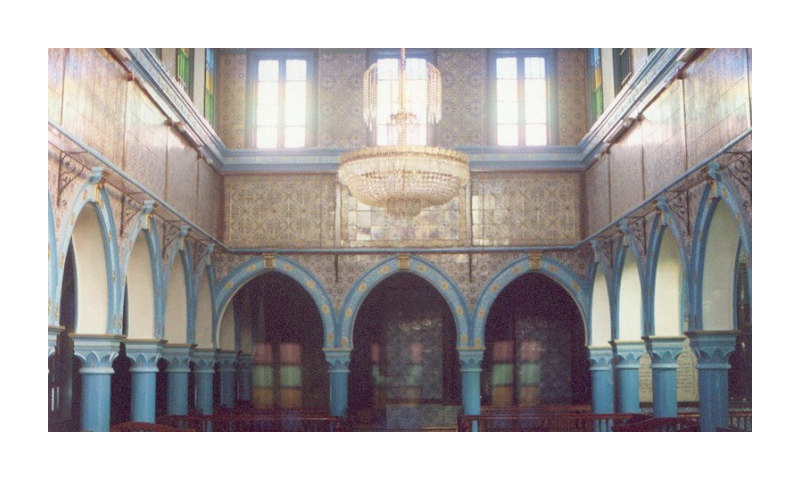Simon Speakman Cordall
Foreign Policy, June 2, 2023
“[Saied] deals in a very utopian vision. Anything that contradicts that—such as anti-Semitism or the recent attacks on the country’s undocumented black migrants—has to be rejected and denied.”
Tunisia has largely moved on from the May 9 killing of five people at the El Ghriba synagogue on the island of Djerba by a National Guardsman. The event’s prominence on the country’s news sites has diminished and its claim on Tunisian conversation has largely been ceded to the other items competing for space at the national table.
On-air criticism of police recruitment methods by radio hosts Haythem El Mekki and Elyes Gharbi swiftly resulted in a legal complaint from the security services and, essentially, an end to discussion.
Thus far, Tunisia has steadfastly refused to publicly address the anti-Semitic nature of the attack, preferring instead to characterize it as “criminal.” However, the fact that the Jewish tourists and locals gathering to celebrate the festival of Lag B’Omer were specifically targeted by the attacker, 30-year-old National Guardsman Wissam Khazri, is hard to dispute.
After killing his colleague, Khazri donned body armor and rode 12 miles by quad bike to attack the pilgrims at the synagogue. However, beyond the arrest of four conspirators, his motivation for doing so, or details of any radicalization, remains unknown. … [To read the full article, click here]


